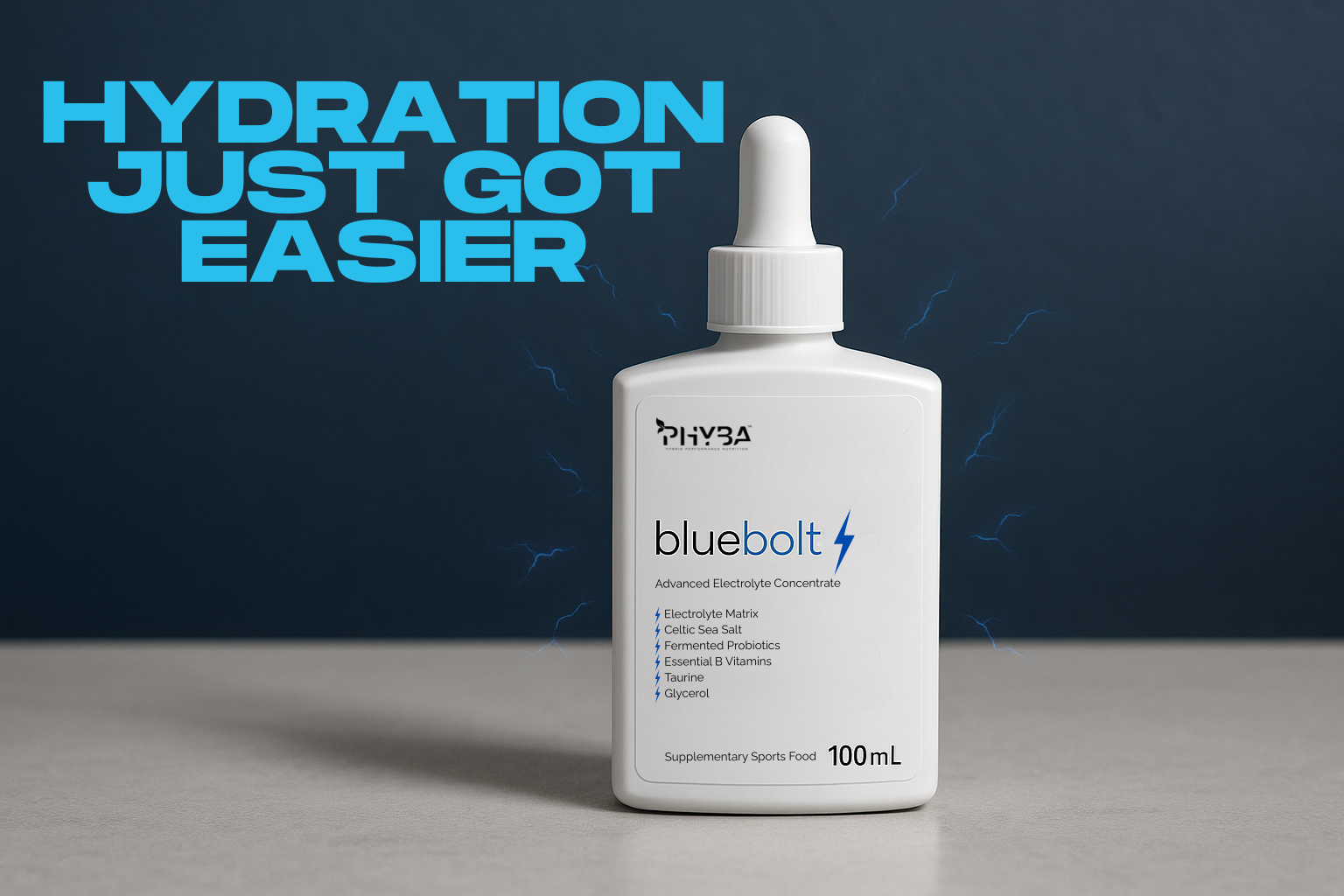Staying hydrated is crucial for athletic performance and overall health. This is especially true for runners and Hyrox competitors – athletes who push their endurance and strength to the limit. Hyrox, for those unfamiliar, is a fitness race that combines 8 rounds of 1 km running with 8 functional workout stations (think rowing, sled pushes, burpee broad jumps, etc.), testing both aerobic stamina and muscular power voomnutrition.co.uk. In such demanding events, hydration often becomes the hidden edge that separates a strong finish from a brutal struggle. Even for everyday enthusiasts training for Hyrox or weekend runs, proper hydration can make a noticeable difference in how you feel and perform.
During a Hyrox race, athletes tackle strength challenges like heavy sled pushes in between running intervals. Proper hydration helps sustain both endurance and power in events like this.
How Dehydration Impacts Performance (Endurance & Strength)
It doesn’t take extreme water loss for performance to suffer. Research shows that exercise performance can start declining with as little as a 2% loss of body weight through dehydration us.humankinetics.com. To put that in perspective, a 70 kg athlete who loses just 1.4 kg of sweat might already see impairments. In endurance exercise, even “mild” dehydration (around 1–2% of body weight lost) reduces the body’s ability to sustain effort us.humankinetics.com. As you dehydrate, your blood volume drops and body temperature rises, forcing your heart to work harder to pump blood and keep you cool. For example, studies in hot conditions show that for every 1% of body mass lost as sweat, heart rate ticks up about 3–5 beats per minute and core temperature also increases pmc.ncbi.nlm.nih.gov. This means your usual running pace will feel tougher as dehydration sets in.
The endurance impact is significant: slower pace, higher perceived effort, and earlier fatigue. In fact, one classic finding is that losing over 5% of body weight in fluids can decrease work capacity by roughly 30% us.humankinetics.com – a huge hit to an athlete’s stamina. Even in cooler weather, dehydrated runners have lower VO₂max and shorter time to exhaustion compared to when they’re well-hydrated us.humankinetics.com. Simply put, a dehydrated body can’t cool itself as efficiently or deliver oxygen to muscles as well, so performance declines.
Strength and power suffer too. We often associate hydration with endurance sports, but studies make it clear that anaerobic and strength performance need hydration as well. Dehydration diminishes neuromuscular function – muscles don’t fire as effectively when fluid and electrolyte levels dip. One study noted that a mere 2.5% drop in body weight from dehydration led to about a 45% decrease in high-intensity exercise capacity. In other words, even short bursts like sled pushes or sprints can feel dramatically harder if you’re not hydrated. Reduced fluid means less blood supply to working muscles and impaired electrolyte balance, which can trigger muscle cramping and loss of coordination. It’s no surprise that power output drops once dehydration passes the 2% mark, as documented by multiple studies. For Hyrox athletes who need to lift, push, and sprint after running several kilometers, this decline in strength and power can be the difference between hitting a wall or hitting a personal best.
The Daily Health Effects of Hydration
Hydration isn’t only vital on race day – it’s a daily essential for feeling and functioning your best. Even mild levels of dehydration can impact your day-to-day health, mood, and clarity. Research from the University of Connecticut found that losing about 1.5% of your normal water volume (considered mild dehydration) can cause headaches, fatigue, and difficulty concentrating today.uconn.edu. Remarkably, these adverse effects were seen even in people at rest, not just during exercise today.uconn.edu. Many of us go through work or training slightly dehydrated without realizing it, and we pay the price in how we feel. You might experience that afternoon slump or brain fog simply because you haven’t had enough fluids.
Thirst is not always a reliable indicator – by the time you feel thirsty, you might already be 1–2% dehydrated and experiencing subtle performance declines today.uconn.edu. Lawrence Armstrong, a hydration expert, pointed out that staying properly hydrated is just as important for someone sitting at a desk as it is for a marathon runner today.uconn.edu. In both cases, dehydration can sap your energy and motivation. For athletes, being well-hydrated day-to-day aids recovery, helps maintain joint health, and keeps your energy levels steadier. Your heart doesn’t have to work as hard to circulate blood, and nutrients can be delivered more efficiently throughout your body. Think of water as a nutrient itself – it’s the medium for all the biochemical reactions that power your muscles and mind.
Why Hydration Is Critical for Hyrox Competitors and Runners
Hyrox races typically last around 60–90+ minutes of continuous effort, and runners often log long miles – these activities generate a lot of sweat. In a high-intensity hybrid event like Hyrox, it’s common to lose a significant amount of fluid. Many athletes finish a Hyrox race dehydrated, some losing 2–2.5 liters of sweat per hour during the competition. That’s literally leaving a part of yourself in a puddle on the floor. If you don’t proactively hydrate, your body can hit a dehydration level that noticeably slows you down or causes muscle crampsright when you need to push hardest. Endurance segments (like running between stations) get tougher as your heart rate climbs disproportionately, and strength tasks (like a heavy sled push or wall balls) feel more brutal when your muscles are dry and electrolyte-depleted.
Runners face similar challenges. On long runs or races, even slight dehydration can creep up and start chipping away at your pace. You might notice your heart pounding harder and your skin getting hotter – signs that your cooling system is struggling due to low fluids. Dehydration also impairs cognitive function and decision-making, which for a runner might mean less focus on form or race strategy. In Hyrox, with its complex mix of movements, staying mentally sharp is key; water and electrolytes help keep your nervous system firing optimally. Hydration, therefore, isn’t just about quenching thirst – it’s about maintaining the internal conditions for your body to perform all its tasks efficiently, whether it’s running a fast kilometer, hoisting a sandbag, or simply staying motivated through the final push.
Hydration Strategies for Everyday Athletes
The good news is that proper hydration strategies can help both competitive athletes and everyday fitness enthusiasts optimize their performance and health. Here are some practical hydration tips for those training for Hyrox or running regularly:
-
Start Hydrated: Don’t begin your workout on a deficit. Surprisingly, an estimated 40–50% of recreational athletes start exercise already in a mildly dehydrated state. Make a habit of drinking water throughout the day. In the hours before a big training session or race, sip on fluids regularly. Some experts recommend “preloading” with an electrolyte drink (for example, ~500 ml of water with electrolytes a couple of hours before activity) to ensure your tanks are full. This boosts your blood plasma volume, giving you a reserve so you can lose sweat more safely.
-
Drink During Long Efforts: For workouts or races over an hour (or in high heat), plan to replenish fluids during exercise. Runners can carry a lightweight bottle or use aid stations to grab sips of water or sports drink. Hyrox events have a hydration station on the course, and taking a few seconds to drink can stave off that performance slump that comes with dehydration. Don’t overdo it – small, frequent sips to satisfy thirst and limit weight loss to under ~2% body mass is a good rule of thumb. Listen to your body; if you’re feeling very thirsty or cramping, that’s a cue to hydrate.
-
Include Electrolytes: When you sweat, you lose not just water but also electrolytes like sodium and potassium that are critical for muscle function. Electrolyte replacement helps your body hold onto the water you drink and can prevent cramping during intense or prolonged exerciseprecisionhydration.comprecisionhydration.com. Consider sports drinks or electrolyte tablets especially for longer sessions or if you’re a heavy sweater (e.g. your clothes are salt-crusted after a workout). This is particularly relevant for Hyrox athletes, since the combination of endurance and strength work can produce heavy sweating and electrolyte loss.
-
Rehydrate and Recover: After training or racing, don’t neglect rehydration as part of your recovery routine. Replacing the fluid (and salt) you lost will help your heart rate and body temperature return to normal and can reduce post-exercise fatigue. Sports science guidelines often suggest drinking about 1.25 to 1.5 times the fluid you lost (weigh yourself before and after to gauge this, if possible) over the hours following exercise to fully rehydrate. In simpler terms, continue sipping water and include some salty snacks or a recovery drink. This will speed muscle recovery and get you ready for your next workoutgssiweb.org.
-
Make Hydration a Daily Habit: Don’t just think about hydration on workout days. Make it part of your lifestyle. Keep a water bottle at your desk or in your bag. Eating plenty of fruits and vegetables (which have high water content) can also contribute to your hydration. By staying consistently hydrated, you’ll likely notice better energy and less hunger pangs (we sometimes mistake thirst for hunger). And when it’s time to exercise, you’ll already be in a good hydration state, needing only to top up rather than play catch-up.
Conclusion: Stay Hydrated, Stay Competitive
For runners, Hyrox competitors, and anyone leading an active life, water is truly the cheapest performance booster you can get. It powers your endurance by keeping your cardiovascular system efficient, and it supports your strength by enabling muscle contractions and preventing fatigue-related lapses. Conversely, even a slight dehydration can stealthily sap your speed, power, and mental sharpness – turning what could have been a great workout into a mediocre one. The science is clear that hydration affects everything from muscle power output to cognitive function, as well as mood and recovery.
The takeaway is simple: Don’t wait to be thirsty. By the time thirst hits, you’re already on the path to impaired performance today.uconn.edu. Instead, be proactive. Drink throughout the day, fuel up with fluids before hard efforts, and rehydrate after. Your body will reward you with better endurance, more strength when you need it, and an overall sense of well-being. Whether you’re aiming for a podium at a Hyrox event or just trying to beat your personal record on a 10K run, proper hydration is an easy win – a fundamental habit that keeps you healthy and gives you a competitive edge every day. Stay hydrated, and you’ll stay one step ahead.
Blue Bolt, shown above, is an exciting new product coming soon to PHYBA. This revolutionary hydration aid combines electrolytes, blue algae for mitochondrial support, taurine for enhanced longevity and hydration, and glycerol for improved fluid retention. It's a superior alternative to methylene blue, offering a powerful blend to optimize hydration and overall performance.



